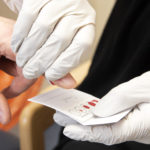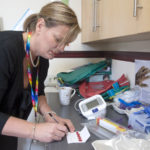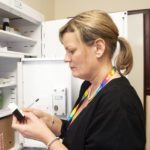Tracey Clusker
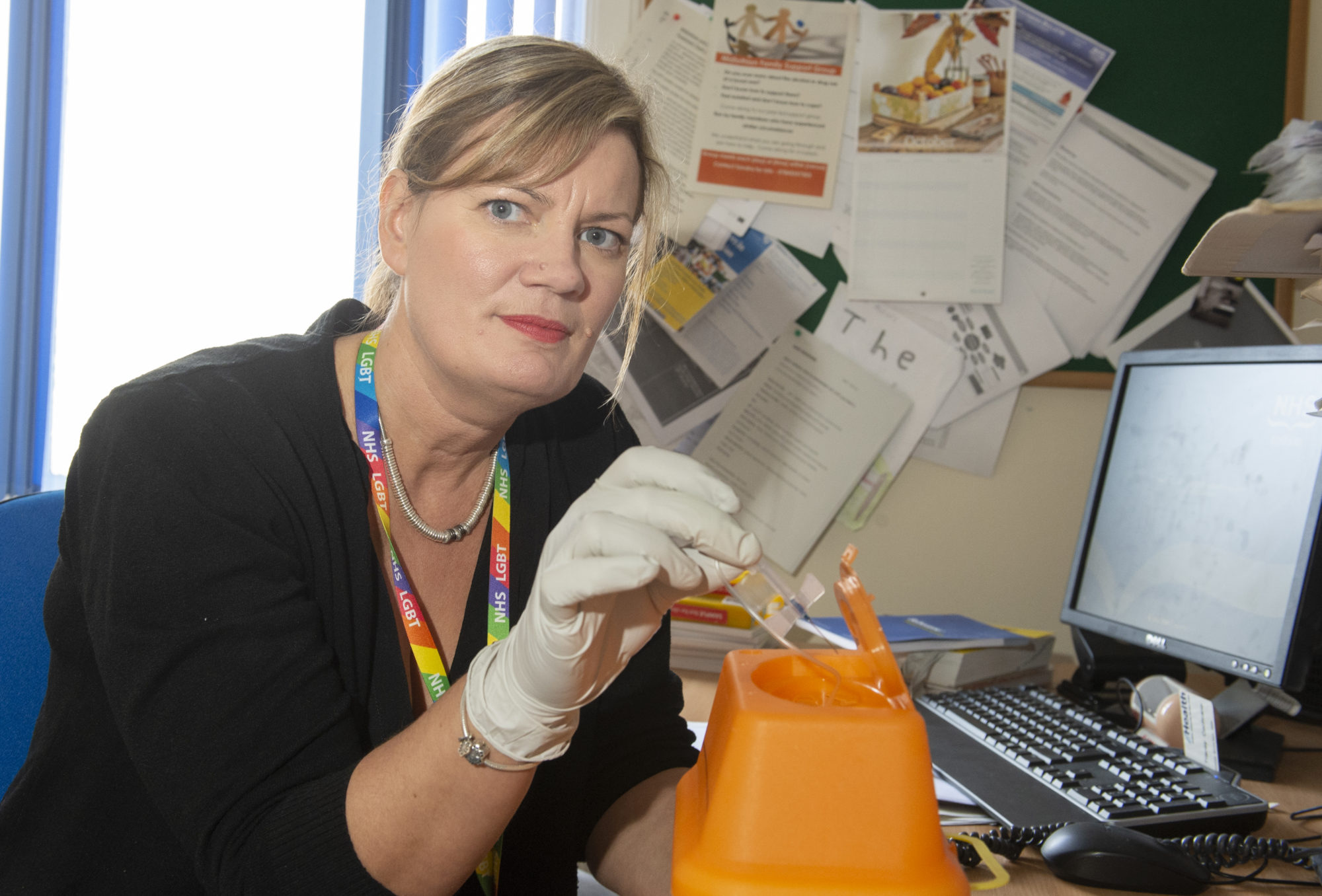
Tracey Clusker has worked within substance misuse teams for the last 12 years. In her current role as a Team Manager with NHS Lothian based in Dalkeith, she is focused on reducing health inequalities while delivering a high-quality service to the recovery community.
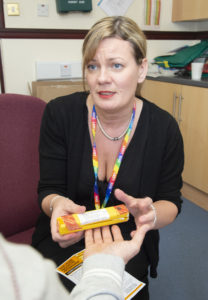
I have always worked with people – as a teenager I used to work at the weekend voluntarily in a soup kitchen via the church and found this very rewarding. I left school thinking that I would go into social work but after exploring the roles a bit further, I came to the opinion that nursing would be more hands-on. I completed an HND in Mental Health Nursing at Napier University before going on to graduate with a degree in child and adolescent nursing.
I worked in the wards initially, but I was always interested, even in my teenage years, in working with the homeless population. So, after two years of hospital nursing, I went for a job working as a community mental health nurse within homelessness.
Once in that post I realised a high population of people had drug issues and I was drawn to working with this group as I felt they experienced stigma and were marginalised despite their trauma. This led me to working as a community mental health charge nurse in substance misuse. I provided a variety of interventions to a caseload of clients, including needle exchange, dry blood spot testing, opiate replacement therapy prescribing and supporting GPs with mental health assessments. I worked in this role for eight years before becoming a team manager and I have been in my current post with NHS Lothian for four years.
I practice as an independent nurse prescriber within an opiate replacement therapy and community alcohol detox clinic. I also have the operational day-to-day management of the substance misuse team and substance misuse social work team, as well as the supervision and development of the team. I am chair of the Midlothian Drug Related Death Group, reviewing all deaths in a sensitive and respectful manner and reviewing any learning points. I am also part of the health and social care operational management team which means a pivotal part of my role is working alongside all partner agencies.
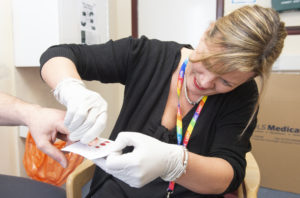
It’s a varied role, no two days are the same, but my day is always busy. For example, today I was starting people on opiate replacement therapy and meeting with the people running the Cocaine Anonymous meeting in our building. In the afternoon, I ran my Queen’s Nursing project drop-in where I offer offering blood borne virus (BBV) testing, needle exchange and prescribing, working alongside peer support workers. We offer tea, coffee and snacks as an incentive for them to stay and chat and this enables me to engage with people in a meaningful way.
I love being able to work with people where they are at and feel like I am contributing to increasing their quality of life. I know my clients and their families and work shoulder to shoulder to them. My job gives me freedom to advocate for clients and empower them to make decisions about their treatment.
I know that I offer a very humane way of engaging my clients – and it’s about knowing them as human beings and understanding the underlying reasons for their addiction. My expertise as a mental health nurse is in making people feel valued in my approach. I work hard to reduce stigma and hope that I reduce drug related harm for the client and maximise hope.
One of my main strengths is in promoting partnership working and seeing the links in what we can achieve when we work closely together for patient outcomes. I was recently part of a short life working group to promote peer support. I think my enthusiasm for substance misuse care and my commitment to making things better can be contagious as I now have a group of peers keen to work alongside me.
I am passionate in my role as a community nurse working within substance misuse and feel that being a Queen’s Nurse will raise the profile of substance misuse nursing, within our profession and amongst the public.
As part of the Queen’s Nurse programme, I started off focusing on the cohort of older drug users. They are often single men, living alone who are socially isolated, with many other challenges in terms of their physical and mental health.
I think that stigma is a factor in recovery. I hope I can keep people engaged to feel valued, so I can minimise harm, reduce isolation, build hope and capacity and hopefully reduce the number of drug related deaths.
I have developed a local “one stop shop”, run in a drop-in style and/or with planned appointments depending on what would suit the individual’s needs. Given the partnership working we already have with the Keep Well Team, we are using this service to address and consider overall health and wellbeing needs. We provide harm reduction locally as part of this clinic, providing regular blood borne virus testing, needle exchange, and wound care.
However, something that has come out of my Queen’s Nurse project is that I have identified the needs of women are very different to men when accessing services so I am looking at developing another model for women. As a result of this, I have undertaken a postgraduate qualification in sexual health to further reduce health inequalities for women accessing sexual health services.
People who have been through the service and are in recovery are an integral part of these clinics. Often clients have lost hope, and, in my experience, talking with someone who has lived experience can be powerful in instilling hope, and motivation. We hope by offering wound care, keep well, needle exchange and addressing health needs we will reduce health equalities and drug related harm. I would like to show through this work that harm reduction is a true pathway to recovery.
